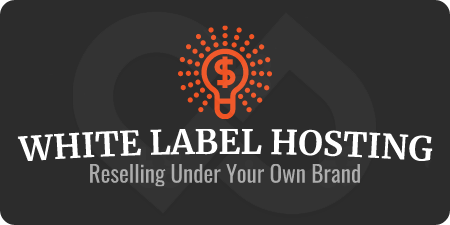Heads Up: WordPress Anti-Spam Plugin Vulnerability
By Kevin Williams / Nov, 30

In the world of website hosting, there are a variety of options available to website owners looking to put their website online.
One option that has gained popularity in recent years is white label hosting. White label hosting, sometimes also known as reseller hosting, refers to a web hosting service where a company leases server space from a larger hosting provider like DataPacket, and then resells that space under their own brand name.
In this article, we will explore what white label hosting is, how it works, its advantages and disadvantages, and who might benefit from this type of hosting.
White label hosting is a type of web hosting where a company leases server space from a larger hosting provider and then resells that space under their own brand name.
This means that the company is essentially acting as a middleman, purchasing server space from a larger provider and then reselling it to their own customers.
The company handles all aspects of customer service, support, and billing, while the larger hosting provider remains anonymous to the end user.
There are a number of advantages to using white label hosting. One of the main advantages is that it allows companies to offer web hosting services under their own brand name, without having to invest in the infrastructure required to host websites.
This means that companies can offer web hosting services without having to invest in servers, network infrastructure, and other costly components.
Another advantage of white label hosting is that it can be a way for companies to generate additional revenue. By reselling hosting services, companies can earn a commission on the sale of each hosting package. This can be a profitable business model for companies that are able to effectively market and sell web hosting services.
White label hosting can also be beneficial for companies that already have an existing customer base. By offering web hosting services to their existing customers, companies can create additional value for their customers and help to strengthen customer loyalty. This can be particularly beneficial for companies that are looking to expand their business and increase their market share.
While there are certainly advantages to using white label hosting, there are also some potential disadvantages to consider.
One of the main disadvantages is that companies must have a strong understanding of hosting technology in order to effectively provide customer service and support. This can be a significant barrier to entry for companies that are not familiar with the ins and outs of hosting technology.
Another potential disadvantage of white label hosting is that companies are reliant on the larger hosting provider for server performance and uptime. If the larger provider experiences downtime or other issues, this can impact the performance of the company’s own hosting services. This can be particularly problematic for companies that are reliant on hosting services for mission-critical business operations.
Finally, white label hosting can also be more expensive than other types of hosting, particularly if companies do not have the resources to negotiate favorable pricing with the larger hosting provider. This can impact the company’s ability to generate revenue and achieve profitability.
White label hosting can be a good option for a variety of companies. Some of the companies that might benefit from white label hosting include:
Web Designers: Web designers often work with clients who need hosting services in order to put their websites online. By offering web hosting services under their own brand name, web designers can create an additional revenue stream and provide added value to their clients.
Marketing Agencies: Marketing agencies that offer digital marketing services to their clients can benefit from white label hosting. By providing web hosting services, marketing agencies can offer a complete package of digital marketing services to their clients, which can help to increase customer retention and revenue.
Entrepreneurs: Entrepreneurs who are interested in starting a hosting business can benefit from white label hosting. By leasing server space from a larger hosting provider, entrepreneurs can start a hosting business without having to invest in expensive infrastructure.
Small Businesses: Small businesses that need web hosting services but don’t have the resources to invest in their own infrastructure can benefit from white label hosting. By working with a company that offers white label hosting, small businesses can access hosting services that are reliable and affordable.
IT Service Providers: IT service providers that offer a range of IT services to their clients can benefit from white label hosting. By offering web hosting services, IT service providers can create an additional revenue stream and provide added value to their clients.
Conclusion
For companies that are able to effectively market and sell hosting services, white label hosting can be a profitable business model. By offering web hosting services, companies can create an additional revenue stream, provide added value to their customers, and increase customer retention and loyalty.
Kevin holds a Senior Tech position at DataPacket, where he excels as both a web developer and graphic designer. With his expertise in technical support, he consistently goes above and beyond, surpassing the expectations of clients and colleagues alike.